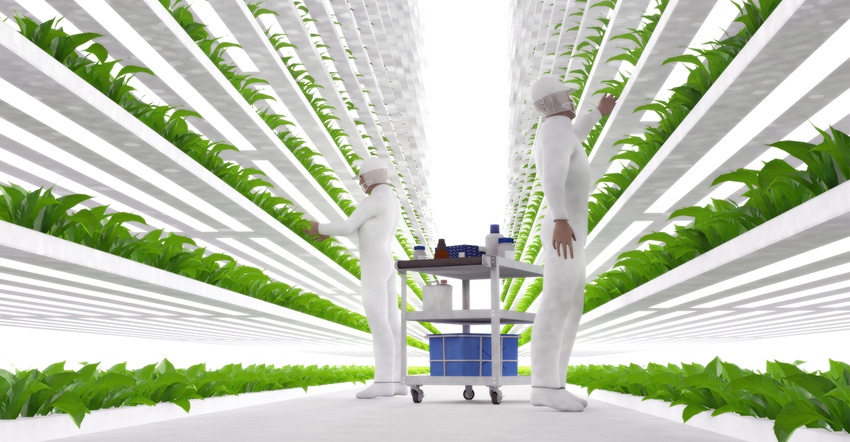Fast Company profiles some of the more futuristic developments in food production.

Ah, yes. The future of food (or, as Fast Company put it: The Wondrous and Completely Terrifying Future Of Food). One of the most important ponderances of our time. As the population grows, arable land shrinks, health declines and water tables drop. As me-first paleo populations continue to demand evermore protein, plant-based diet advocates become more righteous about efficient nutrition production. Nutritional needs become more personalized than ever and supplementation moves into functional food delivery formats.
The natural products industry (including the what-is-natural-anyway? industry) may provide one of the sharpest and most diverse views into the future of food. We’ve already seen manufactured near-meat, vertical farms, egg-free mayo, customized microbiome testing and smart fridges. Animal-free cultured meat, milk and eggs are just around the corner. But we also see the growing, albeit much less futuristic, trends toward real food ingredients and clean label simplicity. And while soil-free farming grows, so does the awareness of the importance of soil, not just for the food it produces, but for the ecological service it provides with the potential to sequester more atmospheric carbon than any other planetary system.
Thus, the future of food becomes a fascinating dichotomy of Jetsons futurism meets Portlandia retroism.
For the Jetsonian part, Fast Company points to the work of Reimagine Food and their Eatnomics three wave schematic that illustrates the not-too-distant future. It starts with, well, basically now: the cutting-edge trends listed above and food box delivery wars, the sharing economy and food biohacking. The second wave, 2019-2022, adds, disturbingly, 3D food printing. “Then, in the next decade, there’s food-as-medicine, food personally adjusted to our microbiome, and food at the molecular and implantable level,” writes Fast Company.
Reimagine, whose site has navigation to topics like “digital gastronomy,” (and many familiar faces) offers this compilation of factoids to inspire disruption. Down with food waste! Up with astroculture?
The future-past mashup will continue to create a vibrant present. “Sometimes, we’ll wonder where a food comes from, the laboratory or a field,” Reimagine CEO Marius Robles told Fast Company. “We’ll experience personalized food in all its splendor, with our genome as proof, as we live in the controversial algorithm economy.”
I don’t know what controversial algorithm economy means, but it sure sounds smart.
About the Author(s)
You May Also Like




